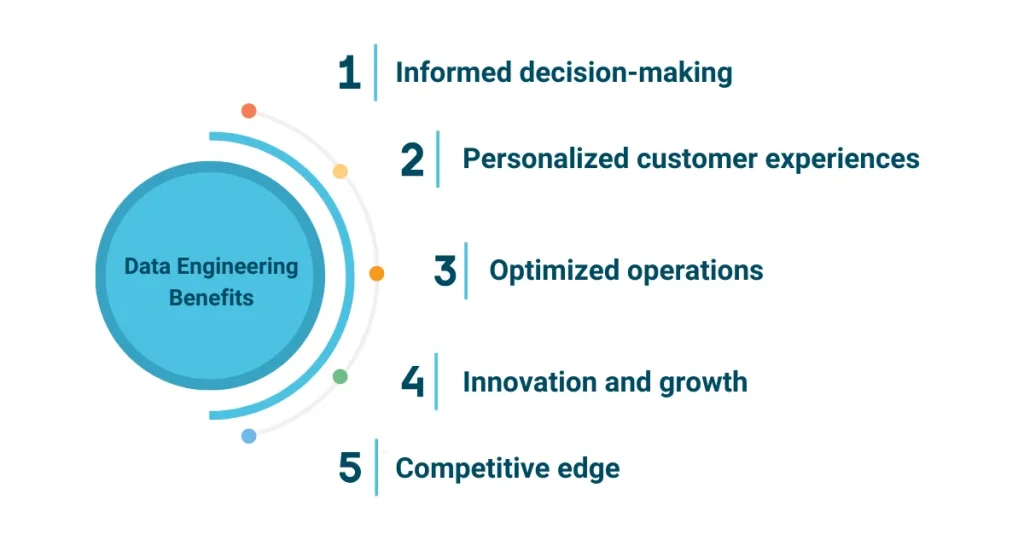- Application Services
- Next-Gen App Development
- Mobile Application Development
- Modernization
-
-
- Integration ServicesGet seamless integration of various 3rd party services or existing systems for smooth operations of your mobile apps
- Cross PlatformsExcellent user experience and functionality of native apps with multi-platform compatibility
- Legacy System Modernization ServicesLegacy system modernization empowers organizations so that they can work more efficiently and intelligently.
-
-
- DevOps
- Software Testing
-
-
- AI Enabled TestingLeverage AI for testing the quality of your software products
- Functional TestingAutomated Functional Testing for improved quality & faster go-to-market
- STQC CertificationQuality, Excellence, and Innovation – The Hallmarks of Suma Soft
- Performance TestingEliminate performance bottlenecks of business-critical apps to run under expected, peak loads
-
- Scriptless Automation SolutionsFast, reliable, and easy testing with our “Ready-to-Deploy” automation framework
- Devops TestingOptimize testing in CI/CD pipelines for greater agility, efficiency, and quality
- AA CertificationEmpaneled Certifier for Account Aggregator (AA) Ecosystem
- ABDM Ecosystem Sandbox Exit ProcessWe Certify Your API for ABDM Sandbox Integration And Exit Process
-
-
- AI/ML Services
- AI/ML ServicesStay ahead of the curve with our advanced AI/ML capabilities
- Data Engineering ServicesDrive data-driven decision-making with our agile and customizable data engineering solutions
- Software Product Engineering ServicesTransform your concepts into market-leading products with our strategic product engineering approach
- VaniePartner with Us for Innovative Web App Solutions!
- Indiastack
- Account AggregatorGet certified using Daksh DEPA Validator to go live on the AA network.
- Ayushman Bharat Digital Mission (ABDM)Get certified using Daksh DEPA Validator to go live on the ABDM network.
- Beckn Protocol ImplementationImplement Beckn protocol to go live on India Stack network.
- ONDC CertificationGet certified using Daksh DEPA Validator to go live on the ONDC network.
- O Rickshaw Pune’s First ONDC Mobility App
- Business Services
- Business Process Management
-
-
- Healthcare BPO ServicesRound the clock coverage for most critical industry
- Logistics & Supply ChainSmarter supply chains Built for today and ready for tomorrow
- Outsource eCommerce Customer ServicesAttain sustainable business growth through a customized ecommerce management solution
- DATA Entry ServicesEnsure the accuracy and security of your data with Suma Soft
- REIT Management ServicesProductivity for You. Transparency for Your Investor
- Customer ServiceSmart use of technology makes all the difference in CX
- US Auto-loan Underwriting Support ServicesEnhance compliance and minimize risk with Suma Soft’s underwriting support!
-
- Finance and Accounting ManagementImproving Account Payable and Receivables Through Artificial Intelligence
- Credit Risk & ComplianceDefine technology roadmap & implementation strategy
- Claims ManagementState-of-the-art technology to assist in responding to rapidly-evolving claim situations
- Exception Handling Services for OCR ProjectsYou do the Coding, we will handle exceptions for you
- UnderwritingEvolve into digital, data-driven enterprises
- Mortgage ServicesStreamline mortgage processing task, increase CX, and reduce origination & compliance cost
-
-
- Tech Support
-
-
- Desktop SupportResponsive, Day-to-Day Tech Assistance
- Network SupportCreate a comprehensive network security strategy for protecting the enterprise end-to-end
- Active Directory SupportMinimize the risk of disrupting critical business apps while optimizing the performance of MS infrastructure
- Microsoft Exchange SupportStay on top of imminent threats to achieve a glitch-free network with rapid Microsoft Exchange support
-
- L1 & L2 SupportOptimize performance with round-the-clock technical support cater to your business goals
- Remote MonitoringKeep your IT systems running smoothly and ensure the stability and security of your IT environment for the workforce
- NOCGet unrivaled NOC services & scale immediately to enhance your bottom-line profitability with 24*7 services
-
-
- Hyperautomation
-
- Cyber Security
-
-
- AssessmentTest your applications and networks to identify & fix vulnerabilities exposing your sensitive assets
- Cloud SecurityIntelligence and expertise providing a new level of cyber-immunity
- Managed SecurityComprehensive security architecture with flexible enforcement for advanced protection
- Digital ForensicsEmpower your organization to access, manage and leverage Digital Data
-
-
- ServiceNow
- ServiceNow Managed ServicesEnjoy Smooth Servicenow Performance and Gain More Value From Your Servicenow Solution
- ServiceNow Integration ServicesIntegrate ServiceNow seamlessly into your IT ecosystem with our ServiceNow Solutions.
- ServiceNow Implementation ServicesTransform your business operations with expert-led ServiceNow implementation services.
- ServiceNow Migration ServiceUpgrade to ServiceNow effortlessly with our end-to-end migration services and support.
- ServiceNow Consulting ServicesMaximize your ServiceNow investment with our strategic and result-driven consulting services.
- ServiceNow ITBM ImplementationAchieve your ITBM goals with our result-driven and expert-guided ServiceNow implementation services.
- ServiceNow ITSM Implementation ServicesGet efficient and innovative ITSM solutions with our specialized ServiceNow implementation services.
- ServiceNow Chatbot DevelopmentTransform your customer service with our innovative ServiceNow chatbot development services.
- ServiceNow CSM ImplementationTransform customer experiences with ServiceNow CSM – Elevate satisfaction, streamline support, and exceed expectations!
- ServiceNow GRC ImplementationElevate compliance with seamless ServiceNow GRC and Transform risk management.
- ServiceNow Security OperationsDrive security innovation. Optimize protection with ServiceNow SecOps and Elevate your defenses.
- Business Process Management
- Digital
- Cloud
-
-
- Cloud App Development ServicesGet high security, efficient performance, and excellent operations with cloud apps
- Cloud Testing ServicesDelivering highly polished solutions to help you reduce costs and meet deadlines
- Cloud Migration ServicesA secure cloud single sign-on solution that IT, security, and users will surely love
-
- Enterprise Mobility
- CRM
- Microsoft Dynamics 365 ServicesStreamline business processes with superior BI, automation, and key customer insights
- Custom CRM Development ServicesDigitize processes, enhance everyday managerial activities and engage more customers
- Salesforce Consulting ServicesTransform Your Business with Expert Salesforce Guidance – Elevate Performance and Drive Growth!
- E-Learning
- Collaboration
- Dusmile Platform
- Cloud
- Insights
- Industries
- Industry We Serve
- Banking And FinanceAccelerate your journey with fintech innovation to reshape customer experience
- GovernmentFully-managed environment for Government, Built for security and compliance
- E-CommerceBest-of-breed technologies to enhance CX and increase revenue to maximize business needs
- E-LearningReimaging education – from remote to hybrid learning
- Logistics & DistributionChanging the landscape of supply chain management
- AutomotiveRevolutionizing automotive development for the digital future
- HealthcareDelivering better experiences, better insights, and better care for better health
- ManufacturingLeverage our deep expertise to modernize your manufacturing and industrial technologies and processes.
- Industry We Serve
- About Us
- About Suma Soft
- HistoryDecades of experience and expertise matched with dedicated professionals.
- LeadershipA leadership that drives Suma Soft to meet its overall goals.
- CertificationsOur recognition as a trusted technology company for orchestrating a successful business transformation
- Our PartnersBringing together the best technologies and practices to offer a prosperous digital future
- About Suma Soft
- Careers
- Contact Us
Why Modern Businesses Can’t Ignore Data Engineering in the Digital Era.
February 15, 2024

Data is important for businesses to grow and succeed in today’s digital world. It’s like a giant puzzle; raw data becomes helpful with the right skills and tools to understand it. That’s where digital business transformation comes in—it helps turn raw data into valuable insights with data engineering.
Businesses can utilize data engineering to convert raw data into valuable insights. With the help of insights gained from data analysis, companies can develop targeted marketing strategies and drive success. E-commerce giants like Amazon, Walmart, and Flipkart leverage data engineering techniques to understand customers’ behaviour and offer personalized recommendations, thus influencing 80% of online shoppers.
By collecting and analyzing data from various sources, these firms can optimize their supply chain and inventory management and develop pricing strategies that help them reduce costs and increase revenue. By identifying trends and patterns in customer data, they can make informed decisions about their products, pricing, and promotions. Studies have shown that businesses that invest in data engineering can see up to a 15-20% increase in profits.
Understanding Data Engineering
Imagine Cloud-based Data Solutions as the bridge turning raw data into Data-driven Decision Making. It covers everything from gathering, storing, and transforming to analyzing data for business intelligence. Data engineers act as architects, constructing pipelines and infrastructure, enabling businesses to use their data effectively.
Why data engineering matters now more than ever
In the era of digital business transformation, data is crucial. Every interaction, transaction, and activity creates valuable information. By using this data, businesses can honestly know their customers, spot trends, predict future outcomes, and unlock the power of Data-driven Decision Making. This knowledge translates into significant advantages, including:
Informed decision-making:
Data-driven insights cut through the noise, allowing leaders to make strategic decisions based on concrete evidence rather than gut feeling.
Personalized customer experiences
Leveraging the power of IoT Data management, businesses can gain deep insights into individual preferences and behaviors. Businesses can personalize their offerings and communications, building loyalty and satisfaction.
Optimized operations
Cloud-based Data Solutions help identify bottlenecks and inefficiencies in processes, enabling businesses to streamline operations and maximize resource allocation.
Innovation and growth
Data-driven decision-making, fueled by insightful data analysis, forms the development of new products and services that address customer needs and market trends, driving business growth and innovation.
Personalized customer experiences
Businesses that effectively leverage digital business transformation gain a significant advantage over competitors, outperforming them in market share and profitability.

The evolution of data
It was sometimes different from this. In the old days, data was everywhere, stuck in separate departments like in little isolated islands. That’s where robust IoT Data Management comes in. This made it hard to get valuable insights and slowed down decision-making.
The digital era brought a data revolution, opening the door to digital business transformation. Cloud-based Data Solutions, encompassing cloud computing, Big Data tech, and advanced analytics tools appeared, letting businesses gather, store, and analyze data on a huge scale. This led to the data-driven business model, where data is key to every aspect of an organization’s strategy and operations.
The critical components of a data-driven approach:
Today, successful businesses don’t just collect data; they wield it as a strategic weapon. Through IoT Data Management, they unlock a deeper understanding of customer behavior, streamline operations, and drive innovation.
Data engineering relies on three key components:
Data Collection and Integration:
This involves gathering data from various sources, including internal systems, external databases, and sensor networks. The data must then be standardized and integrated into a central repository.Data Storage and Management:
Data must be stored securely and efficiently once collected. Data warehouses, data lakes, and cloud-based solutions offer different storage options depending on the volume and type of data.Data Processing and Analysis:
This stage of a successful digital business transformation involves cleaning, transforming, and analyzing the data to extract meaningful insights. Tools like Apache Spark and Hadoop enable large-scale data processing, while machine learning algorithms can be used to discover hidden patterns and trends.The Role of Data Engineering in Decision-Making
Today, successful businesses don’t just collect data; they wield it as a strategic weapon. Through IoT Data Management, they unlock a deeper understanding of customer behavior, streamline operations, and drive innovation.
Empower Decision Makers with Insights:
Data engineers translate raw data into actionable reports, dashboards, and visualizations that decision-makers can understand and utilize. This empowers data-driven decision-making, enabling leaders to grasp the story hidden within the numbers and leverage insights to steer the course.
Enhance Strategic Planning and Forecasting
Businesses can make informed predictions and develop effective strategies for achieving their goals by analyzing historical data and current trends.
Improve Operational Efficiency:
When paired with robust IoT data management solutions, data engineering becomes a powerful tool for uncovering hidden inefficiencies within your processes. By harnessing the vast data streams generated by your connected devices and sensors, you can gain deep insights into how your operations genuinely function.
Data Security and Compliance:
Data engineers protect data from unauthorized access and breaches. They also implement compliance measures to align with industry regulations. These efforts are seamlessly integrated into our Cloud-based Data Solutions.
Challenges and Solutions
Implementing data engineering solutions can be challenging. Common obstacles include:
Lack of skilled professionals:
While navigating the crucial stages of digital business transformation, one of the most significant hurdles can be finding qualified data engineers with the right technical expertise.Data silos:
When data comes from different sources and systems are fragmented, it can be challenging to integrate and analyze.Data governance and security:
For the assurance of data integrity and compliance, it is imperative to have resilient governance frameworks and security protocols in place. This holds true, especially when considering Cloud-based Data Solutions.Strategies for overcoming implementation hurdles include:
Empowering and training current employees:
Investing in IoT Data Management programs can effectively address skill gaps within the organization.Adopting cloud-based solutions:
Cloud providers offer scalable and cost-effective data management solutions that can streamline data operations.Harnessing automation and AI:
Automating data pipelines and utilizing AI for data analysis can improve efficiency and accuracy.Importance of Actionable Data:
Data holds immense potential in its raw state, but when it transforms into data-driven decision-making, it truly fuels digital business transformation. Data engineering closes the gap between data and action, allowing businesses to:
Identify and prioritize opportunities:
By analyzing data, you discover hidden patterns and areas for growth.Make proactive decisions:
Use data-driven insights to foresee and address future challenges proactively.Optimize marketing and sales efforts:
Personalize campaigns and target the right customers with data-driven precision.Implementing Data Engineering in Your Business:
Now, you might be wondering where to begin. Suma Soft is here to guide you through the intricacies of data engineering and create a data-driven foundation for your successful digital business transformation. We provide a range of solutions and services, such as
- Designing and setting up data platforms
- Uncovering insights through data analytics
- Creating solutions with machine learning and AI
- Ensuring data governance and compliance.
Here are some steps to integrate data engineering into your business:
Define your business goals:
What are you hoping to achieve with data engineering?Identify your data sources and needs:
What data do you need to collect and analyze?Choose the right tools and technologies:
Different Cloud-based Data solutions and technologies are available, each with strengths and weaknesses.Build a skilled team:
Consider training your current staff or hiring data engineering professionals.Start small and scale as needed:
Start with a small-scale pilot to test your approach, leveraging data-driven decision-making to iterate and refine as you gain experience. Gradually scale up based on the insights gleaned from this initial phase.Partner with a data engineering expert:
Explore collaboration with an IoT Data Management solution provider to leverage their knowledge and resources for enhanced benefitsTechnical Manager – AI/ML Service | Smartchat and Voice Bot development |
Specialize in Fianace | Call centre Automation Project “Vanie – 100% Call Audit Solution
Recent Posts
- What Competitive Advantages Do PWAs Offer Over Traditional Mobile Apps? May 16, 2024
- 5 Must-Have Features for Enterprise-Level iOS Apps May 14, 2024
- 5 Ways to Supercharge Your Android App with AI and Machine Learning May 8, 2024
- Comparing Traditional ETL vs. Modern Data Engineering Approaches April 24, 2024
- Can Outsourcing E-Commerce Customer Service Actually Drive Sales and Brand Loyalty? April 10, 2024
- The Role of Healthcare BPO Companies in Driving Efficiency and Quality Care April 1, 2024
- Streamlining Your Digital Transformation Journey With ServiceNow Implementation March 15, 2024
- Streamlining Workflows With Next-Gen ServiceNow Integration . March 14, 2024
- What Are ServiceNow Managed Services and How Do They Work? March 13, 2024
- How AI & ML Enhances Customer Experiences: Real-world Examples March 12, 2024

